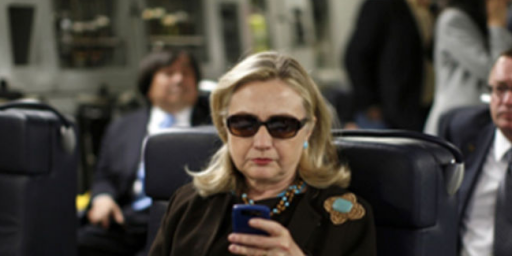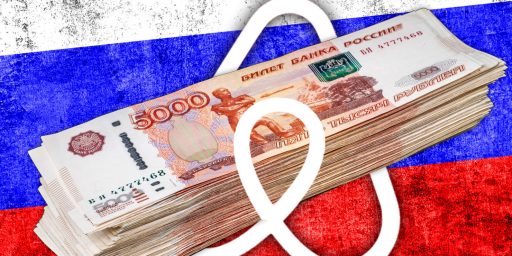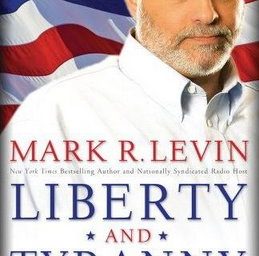Murder by Any Other Name
Christopher Hitchens is hopeful that we may be turning the corner on sympathy for the jihadists.
Not to exaggerate or generalize or anything, but in the past week or so it seems to have become very slightly less OK to speak of jihad as an understandable reaction to underlying Muslim grievances. The murder of innocents in a Russian school may have been secondarily the result of a panic or a bungle by Vladimir Putin’s “special forces,” but nobody is claiming that the real responsibility lies anywhere but on the shoulders of the Muslim fanatics. And the French state’s policy of defending secularism in its schools may have been clumsily and even “insensitively” applied, but nobody says that the kidnapping and threatened murder of two French reporters is thereby justified. As for the slaughter of the Nepalese workers in Iraq … you simply have to see the video and hear the Quranic incantations in the voice-over. (I use the words “murder” and “slaughter” by the way, and shall continue to do so, as I hope you will, too. How the New York Times can employ the term “execution” for these atrocities is beyond me.)
*** Often unspoken in commentary on attacks on America and Americans—and even worse, half-spoken—has been the veiled assumption that such things have a rough justice to them. The United States, with its globalizing blah-blah and its cowboy blah-blah, supposedly invites such wake-up calls. And the sorry fact is that French and Russian commentators and politicians have been noticeable for their promiscuity in this respect. It’s also true that the French and Russian record could, if you looked at it in one way, be a real cause of sacred rage. (The French authorities have backed Saddam Hussein and many other regional despots, and the conduct of Russian soldiers in Chechnya makes Abu Ghraib look like a blip on the charts.) But no serious person would ever let these considerations obscure a full-out denunciation of those who deliberately make war on civilians. So let us ponder this serious moment, of solidarity with French and Russian victims, and hope to build upon it.
I’m a bit less hopeful that Hitchens, which is a sad commentary indeed given his proclivities. Still, most of the commentary I’ve noted on the events in Russia and France do indeed focus on the actions of the government rather than the jihadists. The calls for Russia to make accomodations with the Chechnyns and for France to repeal the headscarf ban far outnumber those decrying the murderers.
Update (1001): Daniel Pipes does the legwork in his essay, “They’re Terrorists – Not Activists.”
The press, however, generally shies away from the word terrorist, preferring euphemisms. Take the assault that led to the deaths of some 400 people, many of them children, in Beslan, Russia, on September 3. Journalists have delved deep into their thesauruses, finding at least twenty euphemisms for terrorists:
* Assailants – National Public Radio.
* Attackers — the Economist.
* Bombers — the Guardian.
* Captors — the Associated Press.
* Commandos — Agence France-Presse refers to the terrorists both as “membres du commando” and “commando.”
* Criminals – the Times (London).
* Extremists — United Press International.
* Fighters — the Washington Post.
* Group — the Australian.
* Guerrillas: in a New York Post editorial.
* Gunmen — Reuters.
* Hostage-takers – the Los Angeles Times.
* Insurgents — in a New York Times headline.
* Kidnappers — the Observer (London).
* Militants — the Chicago Tribune.
* Perpetrators — the New York Times.
* Radicals — the BBC.
* Rebels — in a Sydney Morning Herald headline.
* Separatists — the Christian Science Monitor.And my favorite:
* Activists — the Pakistan Times.
Pipes provides analysis and hyperlinks.






It is not a headscarf ban. It is an anything-overtly-religious ban and includes crosses and yarmulkes.
Meezer: True enough. But it’s not a violation of Christians’ belief systems to go around without their crosses and, of course, limits on the majority aren’t seen as repressive. The yarmulke issue is more comparable to the headscarf ban, although I’m not sure it’s as central to the Jewish faith since only certain Jewish sects wear it during secular activities.
Russian-language news media typically referred to th e terrorists as boyeviki (fighters/attackers).
I won’t bet on it. Not while there are people who’s convinced that George W. Bush is evil incarnated. And life under Taliban is preferable to 4 more years of Bush administration.